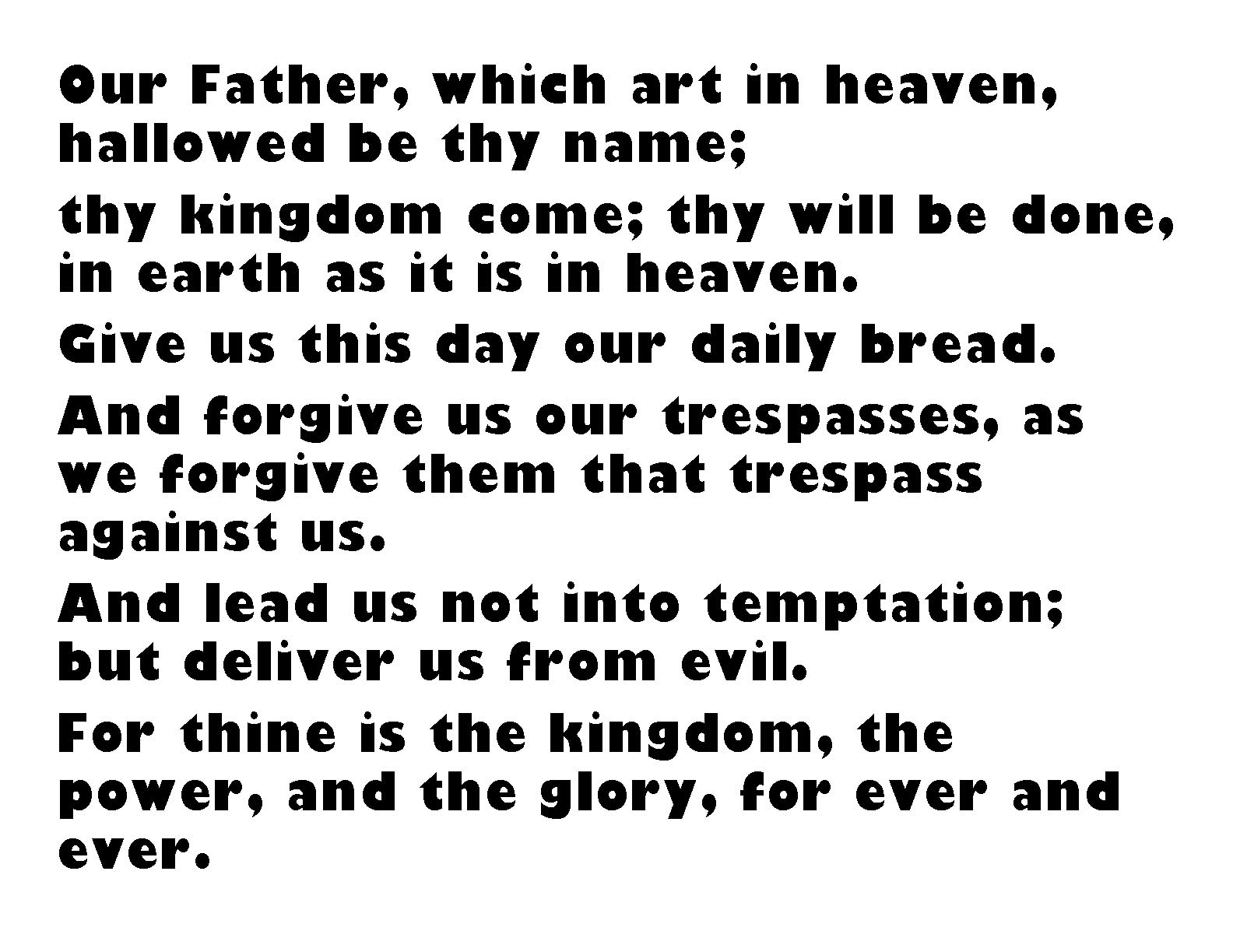The Lord’s Prayer
This is the prayer that Jesus told us to actually use in one place and upon which to model our own prayers in another. After telling us how not to pray, His words were: “After this manner therefore pray ye” in the Gospel of Matthew. He says simply “When ye pray, say” in the Gospel of Luke. Why does it seem that the world would rather any other prayer than this? It is hard to understand why; these are His words, the words of the Master. The Lord’s Prayer, as it is called by most, or the Our Father as it is call by others is a complete prayer for us as individuals though its wording has group import (our Father, forgive us, etc.). We should remember that we each are part of the ‘our’ and the ‘us’ and in praying for all we avoid the pitfalls of separateness and selfishness.
The prayer begins with acknowledgement of our relationship with our God as the Father of all followed by our recognition that He is in heaven. Jesus does not here get into where or what heaven is, He leaves it to our own understanding. Next is a line of praise to the Father and then our first prayer request which asks for His Kingdom to come and for His will to be done in our lives on earth as His will is done in heaven.
If we understand heaven to be within us and that the Kingdom is here now then this is asking that His Kingdom come into our conscious lives and that we become more able to do His will on Earth. As the Kingdom is within us all, we ask that the power and the glory of the Kingdom of God flow through our lives here on Earth.
We next ask for those things that we need to live while knowing that He already knows what they are. In asking, we should also know that they are already provided for; it is our daily bread. We should not be praying that we be showered with the riches and with glory of men but rather to have what we need to live as Sons of God. We then ask for forgiveness and, at the same time, acknowledge that we are forgiving ALL others. Forgiveness not only for sins or trespasses against us but for any perceived wrong whether it rises to the level of sin or not.
The next line is the more difficult to understand as the Lord does not tempt us nor lead us astray. It has been suggested by a eminent Christian writer* that this is a reference to us becoming too big in our spiritual selves being tempted by such to think too much of our selves and our self-righteousness and our supposed place. In this light we should see that we can take our spiritual Light from within and from above and let our mortal, carnal selves abuse it to our own benefit; this is a great wrong. This approach does seem much more sensible than those generally accepted in the church.
Next we ask for deliverance from all such evils as we bring upon ourselves in life generally and also in this manner of using our Spiritual Light for the benefit of the lower carnal self.
We close with a line of praise for the majesty of our God in His eternal nature.
* Emmet Fox (1886-1951) is the author of many books focused on the New Thought movement in Christianity.
This version is from the 1662 Book of Common Prayer.



Pingback: writeessay